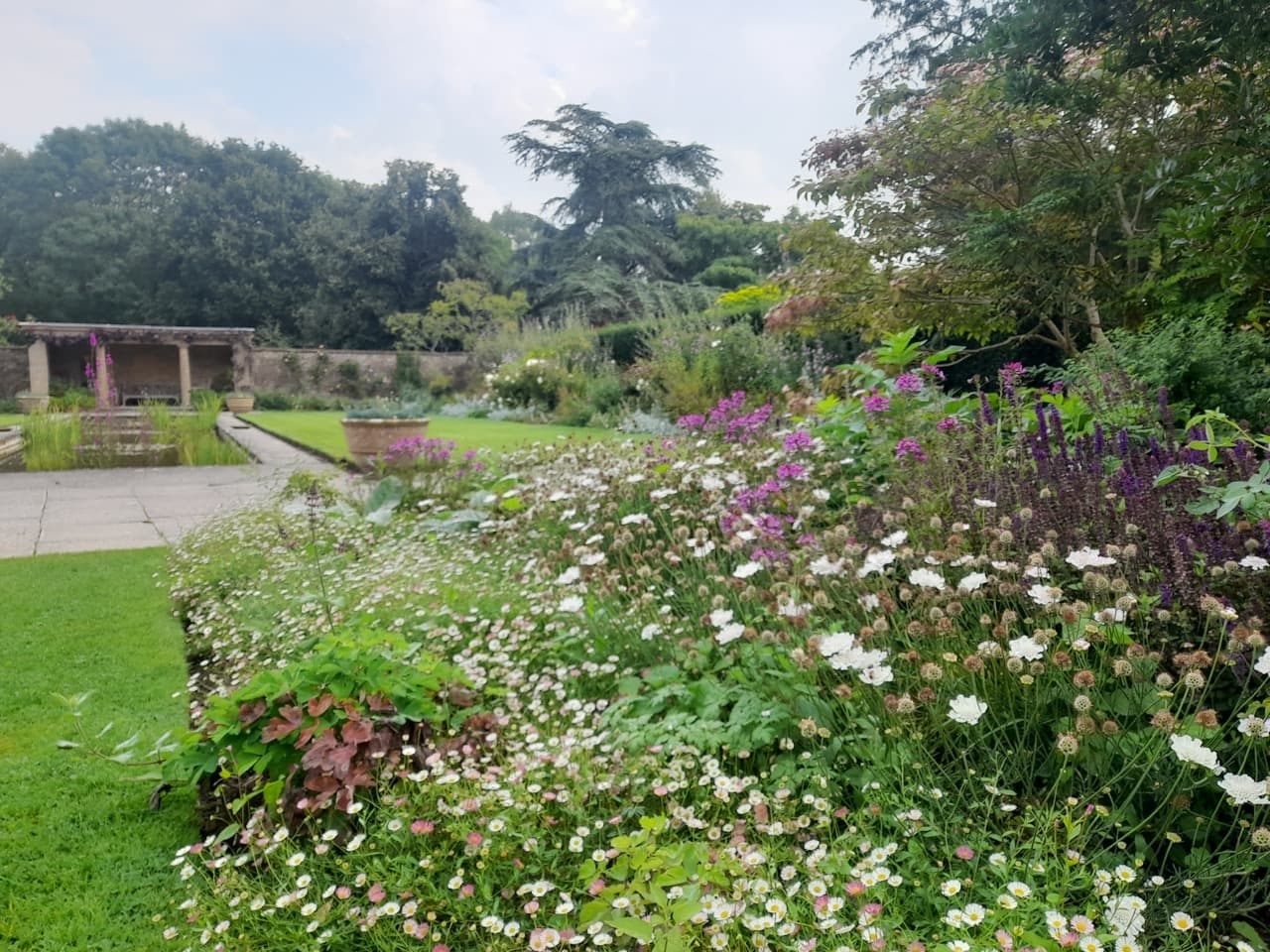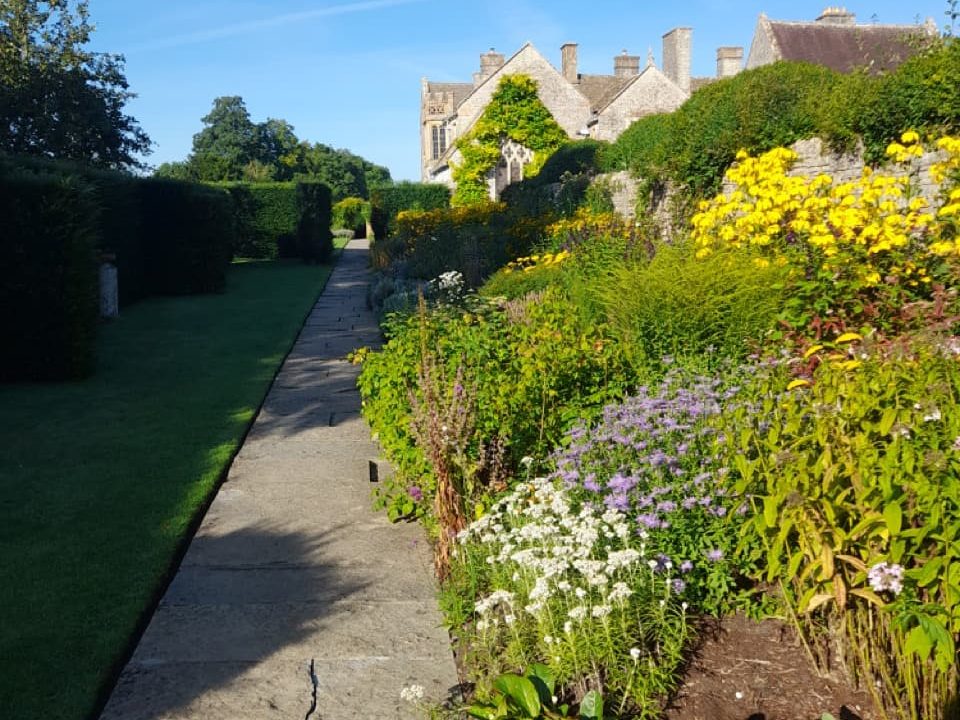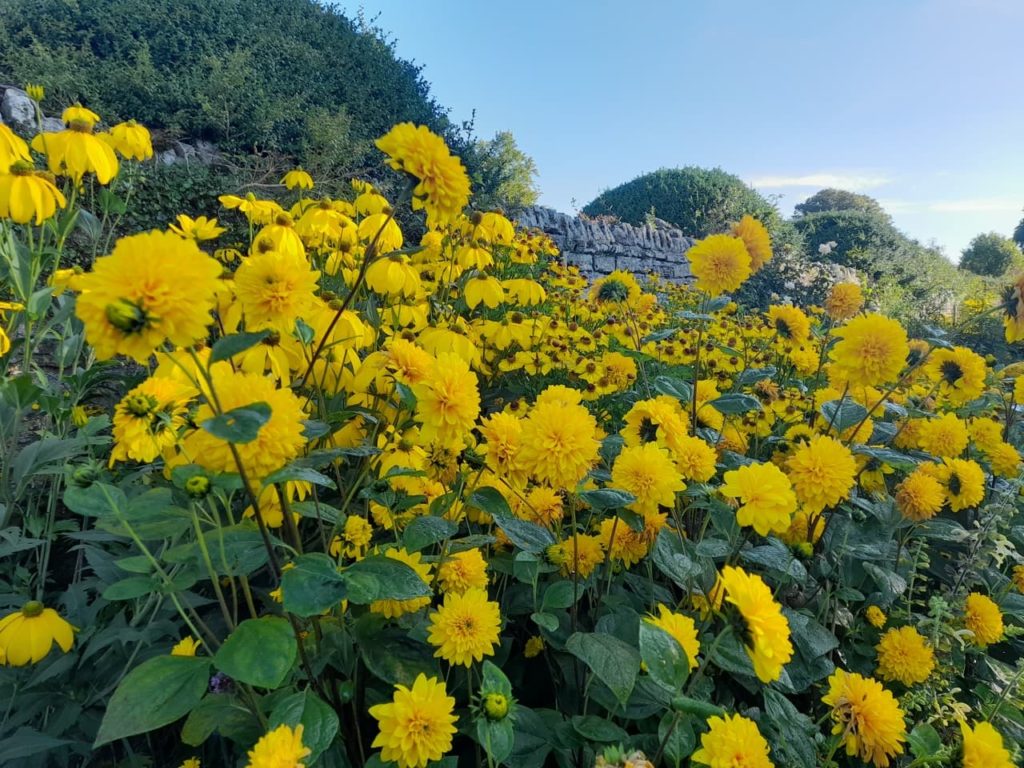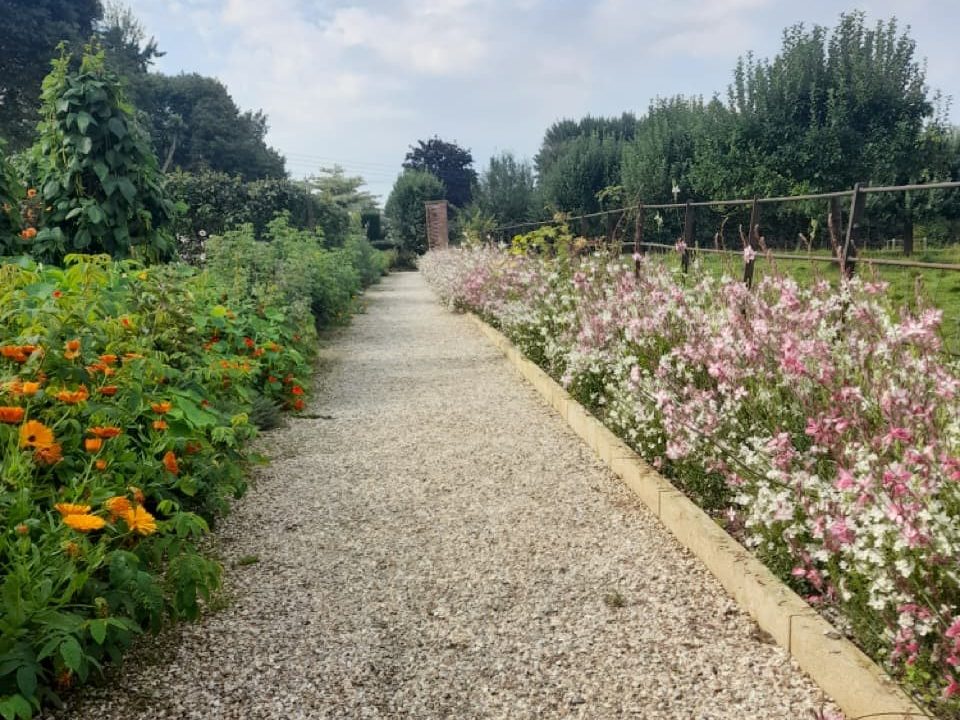Talking Horticulture With Sam Hickmott, The National Trust’s Youngest Head Gardener

Contributions From SAM HICKMOTT

Sam Hickmott is the National Trust’s youngest Head Gardener at two gardens: Lytes Cary Manor & Tintinhull, both in Somerset. He received his RHS Level 2 qualification at 17 and worked as an acting Head Gardener at Prior Park in Bath before his new appointments. Sam also received his RHS Level 3 qualification in 2021.
As the National Trust’s youngest Head Gardener, Sam Hickmott manages not one, but two of their gardens – both based in Somerset.
Sam discovered horticulture at just 17, where an RHS Level 2 course at a local college offered the vocational opportunity to learn more about the industry.
We discuss his early fondness for Bluebells at just 5 years old, his switch from early formal education into horticulture, and the latest plans for the gardens at Lytes Cary Manor & Tintinhull.
Please note that all imagery in this interview is provided courtesy of Sam Hickmott.
Where Did Your Love Of Gardening Come From?
“My love of gardening first stemmed from a love of the outdoors,” shares Sam.
“As a small child, I lived a short walk away from a woodland called Greyfield Woods, managed by the Woodland Trust. Endless carpets of bluebells in spring and the beautiful shade of sweet chestnut canopies in summer are as magical to me now as they were as a five-year-old.

“More recently, my love of horticulture has come from spending time with knowledgeable and passionate Horticulturists.
“This comes from my first job working for a small garden design and maintenance company in Bath to the Head Gardeners, Consultants and Curators I worked with since from the National Trust and beyond.”
What Led You To A Career In Horticulture?
“I started a career in horticulture entirely by chance at the age of 17. Bored of formal education, I (rightly) failed my first year of Sixth Form after not attending the bulk of my lessons – and all I knew was that I no longer wanted to be in a classroom.
“I applied to a Level 2 Horticulture course at a local college and quickly fell in love with the subject. It’s worth saying that after spending a year or so working in various gardens, I quickly became interested in the academic side of horticulture.
“Simply being allowed the space to try it and get away from conventional education for a while allowed me to follow a vocational route that I chose for myself – one that I’m sure I’ll stick with for the rest of my life.”
Can You Tell Us About Your Role As Head Gardener At Lytes Cary Manor & Tintinhull Garden In Somerset?
“As Head Gardener at Lytes Cary Manor and Tintinhull Garden, I am responsible for the maintenance and improvement of both gardens within their respective historic contexts,” he shares.
“Both are arts and crafts inspired gardens, characterised by garden rooms with sharp geometric lines in paths, lawns and hedges, contrasted with soft billowing planting in (often very large) borders.
“Within this are the management of staff and volunteers, budgets, compliance requirements and liaising with stakeholders, contractors and other property departments.

“It’s worth making the point that a garden is only as good as the people maintaining it, and I am really lucky to have such a talented and committed team working with me to develop these fantastic gardens.
“One thing to keep in mind when managing two gardens in tandem, particularly two gardens so similar in style to each other, is to ensure that the two don’t come to look like copies of each other.
“The best way to mitigate this is by researching and spending time in both gardens, getting to know their intricacies and individual peculiarities.”
What Is Your Favourite Time Of Year To Be In These Gardens?
“It’s a bit cliché, but my favourite time of year in the gardens is usually whatever time of year it is when the question is asked,” Sam jokes.
“Spring is full of excitement, as the borders come back to life with flowers and fresh foliage. Summer is a lovely time in the garden and all the hard work from the rest of the year so often peaks in June.
“Autumn is always such a beautiful season, with fantastic light in the afternoons further enhancing the strong reds and yellows of the trees.
“Winter is a time to plan and plant the garden, and with much less available on show, a well-planted winter garden often has a greater impact than an equivalent summer-focused display.”
What Does Horticulture Mean To You?
“Horticulture has given me so much over the past 8 years,” he says.

“Not only has it enabled me to earn a living doing something I really love, it has given me both a creative and intellectual outlet, a means to continue learning and experimenting in an endlessly fascinating subject.
“To have the privilege to work in such beautiful places and the freedom to help them develop is an absolute joy. I can’t think of anyone who wouldn’t be in some way better off for growing and gardening.”
What’s Next For You And The Gardens You Manage?
“We’re always looking to improve the garden at both Lytes Cary and Tintinhull.
“At Tintinhull, we have replanted the middle garden, a garden room planted mainly with shrubs and small trees, to increase the range of interesting and choice plants, as well as to restore the historic layout of the space.
“This year we’re planning to redesign a border in the Cedar Court, another garden room, to strengthen the colour scheme and improve on the current planting.
“At Lytes Cary, we’re currently exploring methods of rainwater harvesting to sustainably (and cheaply) irrigate the garden through our increasingly hot summers.
“In addition to this, the team and I have replanted the borders in the apostle garden to improve the layout as you first enter. In addition, the twelve topiary yew ‘apostles’ are due to be renovated in the spring to bring them back to their historic size and shape and ensure they are in scale with the rest of that garden room.”
What Advice Would You Give To Those Aspiring To A Career In Horticulture?
“The advice I would give to anyone aspiring to a career in horticulture is to get as broad a range of experience as you can, as well as getting a recognised horticultural qualification,” says Sam.

“Applying for entry-level labouring jobs with local garden maintenance companies or nurseries is a great way to learn and get valuable experience, with some employers simply looking for someone hardworking and keen to learn.
“In an ideal world, it’s great to volunteer with an organisation such as the National Trust or RHS, though working for free is obviously not an option for a lot of people.
“If applying for horticulture courses, it’s a good idea to see how many grants are available to pay for it if you aren’t eligible for free education – the Professional Gardens Trust is a good place to start.”

